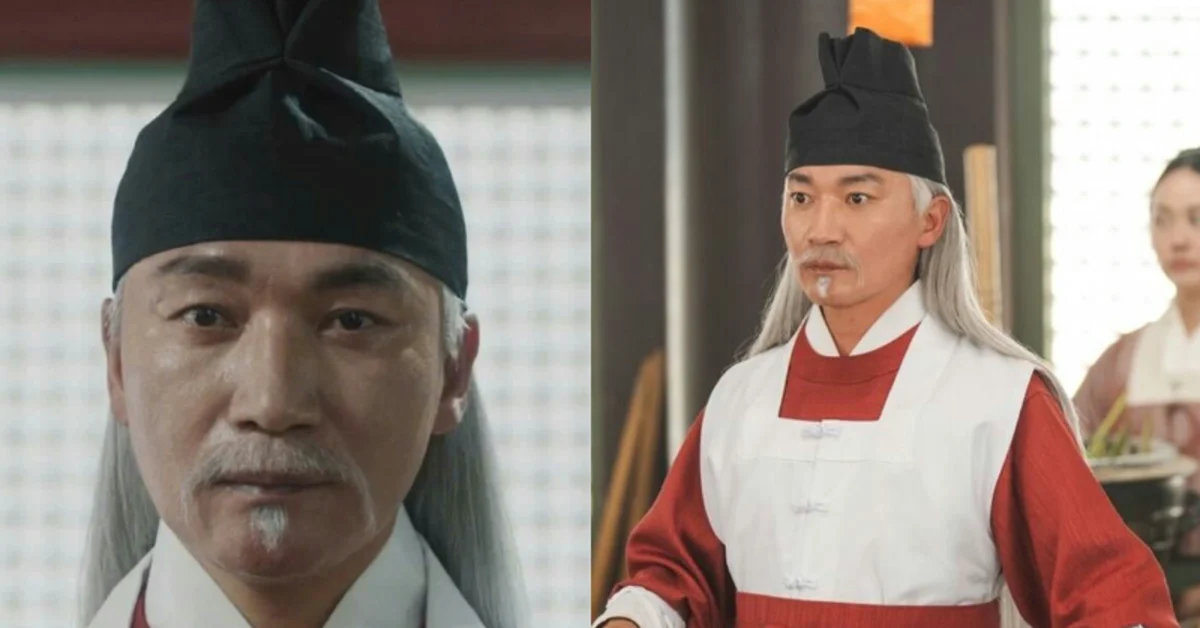Actor Jo Jae-yoon‘s Chinese dialogue in the tvN drama Bon Appétit, Your Majesty sparked both praise and controversy. The situation escalated when a Chinese voice actor claimed to have dubbed the role and mocked Jo’s language skills. This incident highlights ongoing tensions between Korean and Chinese entertainment industries, including recent plagiarism disputes and cultural friction.
Linguistic Authenticity Leads to Unexpected Backlash
The historical fantasy drama Bon Appétit, Your Majesty features Girls’ Generation member YoonA as a French cuisine chef who time-travels to the Joseon dynasty. In a creative decision, the production team had Ming dynasty officials speak in ancient Chinese rather than Korean. Actor Jo Jae-yoon, who plays Ming delegation chef Tang Bailong, delivered his lines in Mandarin.
Initial reactions were positive, with many viewers praising Jo’s pronunciation. Chinese audiences also complimented his language skills. However, the situation changed when a Chinese voice actor posted online claiming he had been hired to dub Jo’s lines. The voice actor mocked Jo’s Chinese-speaking abilities, calling them inadequate. Although the post was quickly deleted, the damage was done. Jo’s acquaintances and colleagues expressed anger over the unnecessary criticism.
The voice actor’s comments were unfair and disrespectful. Jo worked hard to deliver his lines authentically.
This incident reflects broader cultural sensitivities between Korea and China in the entertainment sector. Linguistic representation has become a touchpoint for deeper tensions.
Plagiarism Disputes Continue to Strain Relations
The Bon Appétit controversy comes amid ongoing intellectual property disputes between Korean and Chinese entertainment companies. Earlier this year, the Korean Netflix original show Culinary Class Wars faced plagiarism accusations. Chinese platform Tencent Video launched a cooking show with striking similarities in format and visual presentation.
Netflix Korea formally requested the removal of the Tencent show, highlighting ongoing tensions over intellectual property. Ironically, Netflix does not officially operate in China, meaning its content was accessed and imitated without authorization.
A report by the Korea Creative Content Agency revealed that between 2016 and 2021, 18 Korean variety programs were plagiarized 20 times. Of those cases, 19 occurred in China. This pattern of imitation has frustrated Korean content creators and producers.
However, the reverse has also occurred. Korean streaming platform TVING recently faced criticism for a poster design for its upcoming drama Dear X. The design closely resembled that of the 2018 Chinese film The Devotion of Suspect X. TVING issued an apology and withdrew the poster, acknowledging the similarity.
Historical Context of Korea-China Entertainment Relations
Cultural exchange between Korea and China has always involved both collaboration and tension. In the 1990s and early 2000s, Korean entertainment relied heavily on Chinese imports and collaborations. However, the rise of Hallyu (Korean Wave) in the 2000s shifted the balance significantly.
By the 2010s, Korean dramas, music, and films had gained massive popularity in China. This led to political backlash, including China’s unofficial “Hallyu Ban” in 2016. The ban was a response to South Korea’s deployment of the U.S. THAAD missile defense system. Although never officially acknowledged, the restriction severely limited Korean cultural exports to China for nearly a decade.
Recent signs suggested a thaw in relations. In early 2025, China appeared ready to lift the unofficial ban on Korean content. Plans were announced for K-pop concerts in Chinese cities, and Korean entertainment companies saw stock price increases. However, the cancellation of scheduled performances by groups like EPEX and Kep1er has dashed hopes for a quick resolution.
Anti-China Sentiment Among Korean Audiences
Incidents like the dubbing controversy and plagiarism cases amplify anti-China sentiment among Korean audiences. A June 2025 survey conducted by the JoongAng Ilbo and the East Asia Institute found that 66.3% of Korean respondents held an unfavorable view of China. This figure has increased from 63.8% in a similar survey last year.
The primary reason for this aversion, cited by 58.1% of respondents, was “the nature and behavior of the Chinese people.” Another 39.5% pointed to “China’s one-party communist rule” as their main concern. These reasons now rank higher than economic or environmental issues.
Younger generations in Korea are particularly critical. The survey found that 80% of respondents aged 18–29 viewed China unfavorably. This demographic is also most engaged with entertainment content, making them quick to react to controversies like the Bon Appétit dubbing incident.
Economic Stakes in Cultural Exchange
Despite tensions, China remains a crucial market for Korean entertainment. Before the 2016 Hallyu Ban, China was one of the fastest-growing markets for K-pop and Korean dramas. The ban is estimated to have cost the South Korean economy nearly $16 billion in lost revenue since 2016.
China’s consumer power is significant. It is the second-largest music market in Asia after Japan and has a massive appetite for entertainment content. Korean companies are eager to regain access to this market. Earlier this year, HYBE (manager of BTS) opened an office in Beijing. Tencent Music became the second-largest shareholder in SM Entertainment, another major K-pop label.
China also has economic incentives to reopen to Korean content. The country is struggling with weak domestic consumption. Cultural events, including foreign pop concerts, are seen as a way to stimulate spending in tourism, hospitality, and local commerce.
The reintroduction of K-pop could help diversify cultural offerings and foster regional goodwill.
However, the recent cancellations of K-pop events show that the path to full reopening remains uncertain.
The Role of Global Streaming Platforms
Global OTT platforms like Netflix have complicated Korea-China entertainment relations. These platforms make content accessible worldwide, including in regions where they do not officially operate. This has led to unauthorized access and imitation, as seen in the Culinary Class Wars case.
Netflix has invested heavily in Korean content. In 2023, the platform committed $2.5 billion over four years to Korean productions. Hits like Squid Game and Extraordinary Attorney Woo have attracted hundreds of millions of viewers globally. However, Netflix’s absence in China means that its Korean content often reaches Chinese audiences through unofficial channels.
This lack of formal distribution creates opportunities for plagiarism and unauthorized use. It also makes legal recourse difficult for Korean creators when their work is copied.
For now, incidents like the Bon Appétit dubbing controversy and plagiarism disputes highlight the fragile state of Korea-China entertainment relations. Both collaboration and conflict are likely to continue as these cultural powerhouses navigate their complex relationship.
Also Read: Korean Netizens Tired of New Dating Rumors About BTS V
Credits: Korea JoongAng Daily, NBC News, CNBC






























